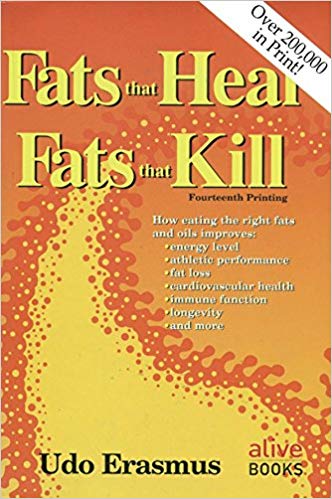By Ben Fuchs | Pharmacist Ben
Lecithin, a key component and “bio-product” made in all cells is also is an active ingredient in “bile”, the body’s soap or detergent. Bile is an under-appreciated substance that’s charged with the role of dissolving fatty substances from foods, loosening them, if you will, so that the rest of the body can have access to them. Because bile is important for mineral absorption from the intestine, lecithin plays a role in helping the body obtain valuable elements like calcium, magnesium, and zinc. Conveniently, lecithin is readily available as a dietary supplement and it’s really inexpensive. An average dose (it’s organic and GMO free) will cost you less than 10 cents. So a couple of capsules or a teaspoon of the stuff taken once (or twice) a day can be a cheap way to support health and wellness.
 Because cholesterol is dissolved by bile, lecithin is protective against the formation of gall-stones which can result from poorly dissolved or crystallized cholesterol. Under ordinary and healthy circumstances, cholesterol stays dissolved in bile. However if our cells are making too much cholesterol, it can precipitate out in crystals and form little rocks or stones (gall stones) which can clog up the tiny tubes in the gall bladder. If this sounds familiar, the last thing you want to do is what half a million people do every year and that’s remove your gall bladder. You can keep stones from forming by making sure the bile detergent system is operating as it should and that may mean supporting it with supplemental and/or dietary lecithin.
Because cholesterol is dissolved by bile, lecithin is protective against the formation of gall-stones which can result from poorly dissolved or crystallized cholesterol. Under ordinary and healthy circumstances, cholesterol stays dissolved in bile. However if our cells are making too much cholesterol, it can precipitate out in crystals and form little rocks or stones (gall stones) which can clog up the tiny tubes in the gall bladder. If this sounds familiar, the last thing you want to do is what half a million people do every year and that’s remove your gall bladder. You can keep stones from forming by making sure the bile detergent system is operating as it should and that may mean supporting it with supplemental and/or dietary lecithin.
Lecithin plays a special role in supporting the health of the brain and the nervous system. It’s an essential component of nerve cells and its electrical properties facilitate the movement of nerve impulses. This makes it valuable for helping prevent movement disorders and dementias. For kids, a little lecithin taken on a daily basis can improve learning and perhaps help reduce the symptoms of attention deficit disorder.
Lecithin can be a good source of essential fatty acids. A 1200 mg capsule of soy lecithin can contain over half (696mg) Omega-6s and more importantly it may contribute 82mg of ordinarily-hard-to-obtain Omega-3 fatty acids. There are other important nutrients in lecithin too. It’s a good source of phosphorus, a vital component of bones and teeth and a major chemical cog in the cellular energy production process. It has inositol which has a relaxing and calming effect on the brain and may be partially responsible for lecithin’s beneficial effects on focus and attention. Diabetics can benefit from lecithin too; it’s packed with the B-vitamin like substance choline, which is important for sugar control. That’s a lot of great stuff for one natural, non-toxic, food-based nutrient!
If you have history of gall stone formation, or if you want to improve brain health and mental functioning, or if you’re looking for a good source of essential fats and nutrients, you’d be wise to make sure you’re using lecithin, especially with fatty meals. Because lecithin is found throughout nature, there are lots of foods you can use to give yourself a lecithin bump. There’s not a lot in processed foods but you can get lecithin in organ meats, seeds and butter. Eggs are nature’s richest source and yet another reason why enjoying eggs on a daily basis can be an important and delicious health strategy. Aside from the aforementioned food sources, you can get lecithin as a liquid or in capsules. It’s also available as a powder that you can blend into a protein drink. Its tastes great and it’ll give your smoothie a nice creamy texture too.
Make your own healthy “PAM” by dissolving organic non-GMO lecithin in some macadamia nut oil. You’ll get the non-stick effects and lots of nutritional value too!





 Healthy cells become cancer cells as a survival mechanism in response to long-term deprivation of oxygen and energizing nutrients which leads to an inability to produce energy AND eliminate toxins. The net result is a starved, suffocated, and toxic cell and ultimately multiple cells, then tissues and organs. The hallmark signs of a cell gone cancerous, i.e. rapid chaotic growth/division and the greedy utilization of sugar and nutrients, represent a cell’s desperate attempt to survive under conditions of toxicity, nutrient deficiency and oxygen deprivation.
Healthy cells become cancer cells as a survival mechanism in response to long-term deprivation of oxygen and energizing nutrients which leads to an inability to produce energy AND eliminate toxins. The net result is a starved, suffocated, and toxic cell and ultimately multiple cells, then tissues and organs. The hallmark signs of a cell gone cancerous, i.e. rapid chaotic growth/division and the greedy utilization of sugar and nutrients, represent a cell’s desperate attempt to survive under conditions of toxicity, nutrient deficiency and oxygen deprivation.







